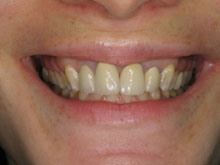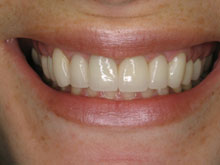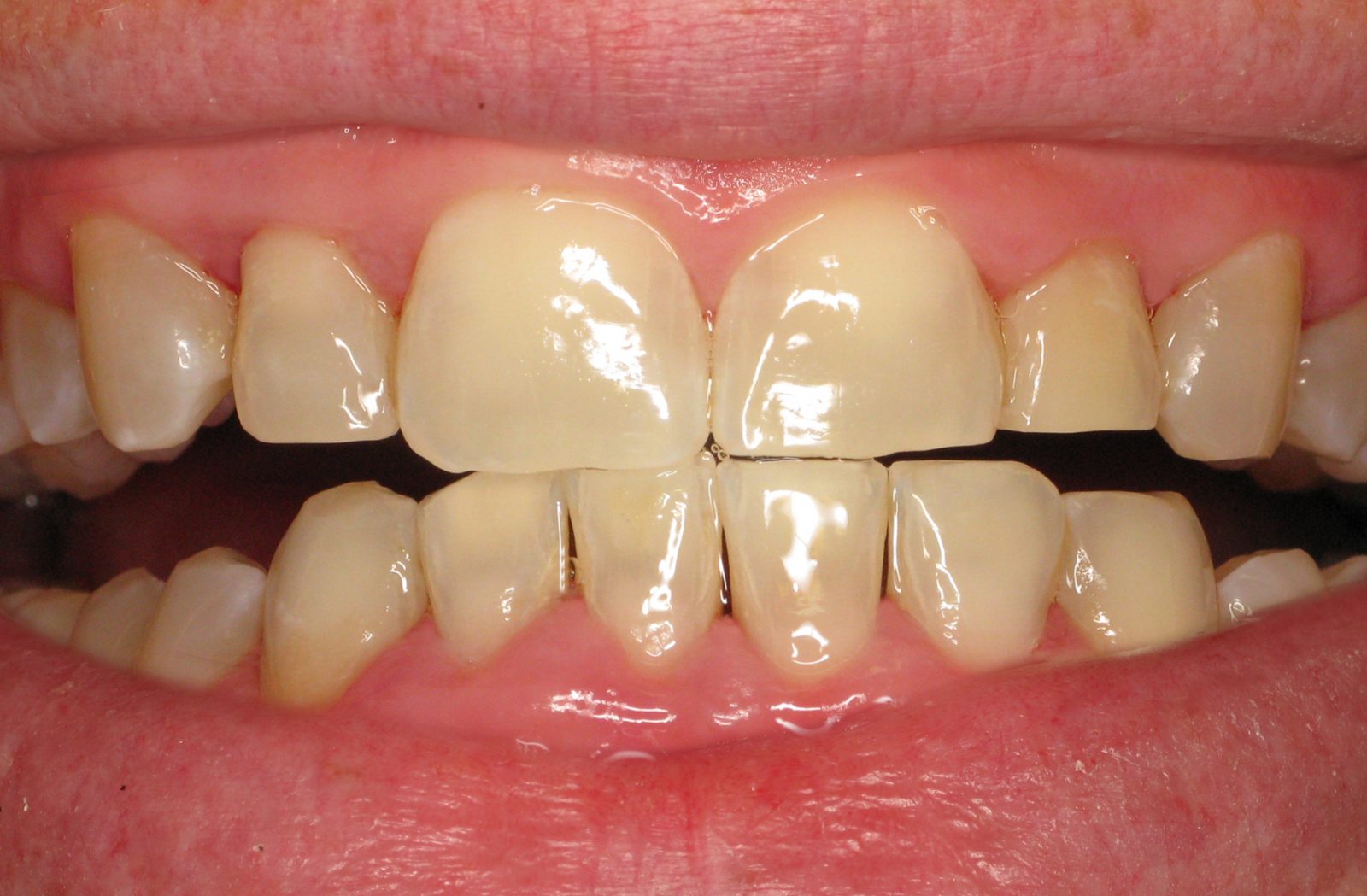How is Tooth Sensitivity Treated in Gum Disease?

Addressing tooth sensitivity involves comprehensive treatment strategies that target the underlying causes, providing relief and restoring oral comfort. Laser Periodontics & Gum Surgery specializes in advanced techniques to alleviate tooth sensitivity associated with gum disease.
Treatments may include thorough dental cleanings to remove plaque and tartar, addressing gum recession through gum grafting to restore protective tissues, and managing inflammation with tailored interventions. Laser therapy, a cutting-edge approach, may target affected areas and promote healing with precise reduced discomfort.
The expertise of Laser Periodontics & Gum Surgery ensures that individuals receive personalized care, addressing the specific factors contributing to tooth sensitivity. Regular consultations with specialists in laser periodontics offer a comprehensive and effective approach, enhancing oral health and providing lasting relief from sensitivity.
What treatment options address tooth sensitivity caused by gum disease?
Several treatment options can effectively address tooth sensitivity caused by gum disease, aiming to manage the underlying issues and provide relief. Thorough dental cleanings, including scaling and root planing, are fundamental in removing plaque and tartar, preventing further gum inflammation, and promoting optimal oral hygiene.
Gum grafting is a surgical procedure that can restore receded gum tissue, covering exposed tooth roots and reducing sensitivity. Laser therapy is an advanced technique that targets affected areas, promoting healing and reducing discomfort. Desensitizing toothpaste and fluoride treatments may be recommended to alleviate sensitivity and strengthen tooth enamel. Anti-inflammatory medications or mouthwashes can help manage gum inflammation.
Customized treatment plans, often involving a combination of these approaches, are designed to address the unique factors contributing to tooth sensitivity in each individual. Regular follow-ups with dental professionals, such as those at Laser Periodontics & Gum Surgery, ensure ongoing monitoring, timely interventions, and sustained relief from tooth sensitivity associated with gum disease.
How do professional dental cleanings help in reducing tooth sensitivity?

Professional dental cleanings are crucial in reducing tooth sensitivity, especially when caused by gum disease. During a cleaning, a dental hygienist removes plaque and tartar from the tooth surfaces and along the gumline, targeting areas that may contribute to gum recession and sensitivity.
By eliminating these deposits, the source of bacterial irritation is minimized, reducing inflammation and preventing further gum recession. Additionally, the polishing process helps smooth the tooth surfaces, removing microscopic irregularities that can contribute to sensitivity. Dental cleanings also allow dental professionals to assess the overall health of the gums and teeth, identifying any signs of gum disease or other issues contributing to sensitivity.
Regular professional dental cleanings, which are recommended every six months for individuals with ongoing sensitivity concerns, are integral to maintaining optimal oral health and managing tooth sensitivity effectively.
Are there specialized dental procedures to alleviate tooth sensitivity due to gum issues?
Specialized dental procedures are available to alleviate tooth sensitivity from gum issues, providing targeted interventions for lasting relief. One such procedure is gum grafting, where a periodontist surgically transplants donor tissue or uses the patient’s own tissue to cover exposed tooth roots, effectively reducing sensitivity. This technique restores the protective gum tissue, promoting a healthier and more resilient environment for the teeth.
Another advanced approach involves laser therapy, which targets affected areas to stimulate healing, reduce inflammation, and minimize discomfort associated with tooth sensitivity. Laser Periodontics & Gum Surgery may utilize this cutting-edge technique to address specific gum issues and alleviate sensitivity. These specialized procedures are tailored to the unique needs of individuals, offering precise and effective solutions to manage tooth sensitivity arising from gum problems.
What role do desensitizing toothpastes or mouth rinses play in treatment?
Desensitizing toothpaste and mouth rinses is crucial in treating tooth sensitivity caused by gum issues. These specially formulated oral care products contain active ingredients such as potassium nitrate or strontium chloride, desensitizing the dentin’s nerve endings and alleviating discomfort. By blocking the transmission of pain signals from the tooth surface to the nerves, these products relieve sensitivity triggered by factors like exposed tooth roots due to gum recession.
Consistent use of desensitizing toothpaste or mouth rinse as part of a daily oral hygiene routine can help manage tooth sensitivity over time. While these products may not address the underlying gum issues directly, they serve as valuable adjuncts to professional treatments and at-home care, contributing to an overall reduction in tooth sensitivity and enhancing the comfort of individuals dealing with gum-related dental concerns.
What are the Potential Risks and Complications of Tooth Sensitivity?
Tooth sensitivity, while common, can pose risks and complications that impact oral health and overall well-being. When left untreated, tooth sensitivity may lead to discomfort and pain, hindering normal activities such as eating, drinking, or even routine oral care practices.
Persistent sensitivity can indicate underlying dental issues, including gum disease, cavities, or enamel erosion, which, if unaddressed, may progress to more severe conditions. Moreover, individuals experiencing tooth sensitivity may alter their dietary habits, avoiding certain foods and beverages that trigger discomfort, potentially affecting their nutrition.
Additionally, avoiding regular dental care due to sensitivity concerns can result in neglecting crucial preventive measures, increasing the risk of further dental complications. Recognizing the potential risks associated with tooth sensitivity, seeking timely intervention to address underlying causes, and promoting lasting oral health and well-being is imperative.
How might persistent tooth sensitivity impact overall oral health?
Persistent tooth sensitivity can significantly impact oral health by being a symptom of underlying dental issues and contributing to various complications. Sensitivity often indicates problems such as gum disease, cavities, enamel erosion, or exposed tooth roots.
When left untreated, these issues can progress, leading to more severe conditions like advanced periodontal disease or tooth decay. Individuals with persistent sensitivity may modify their oral care habits, avoiding proper brushing and flossing due to discomfort. This neglect can exacerbate existing dental problems and increase the risk of plaque and tartar buildup, further compromising oral health. Furthermore, avoiding certain foods and drinks that trigger sensitivity can result in an imbalanced diet, affecting overall nutrition.






